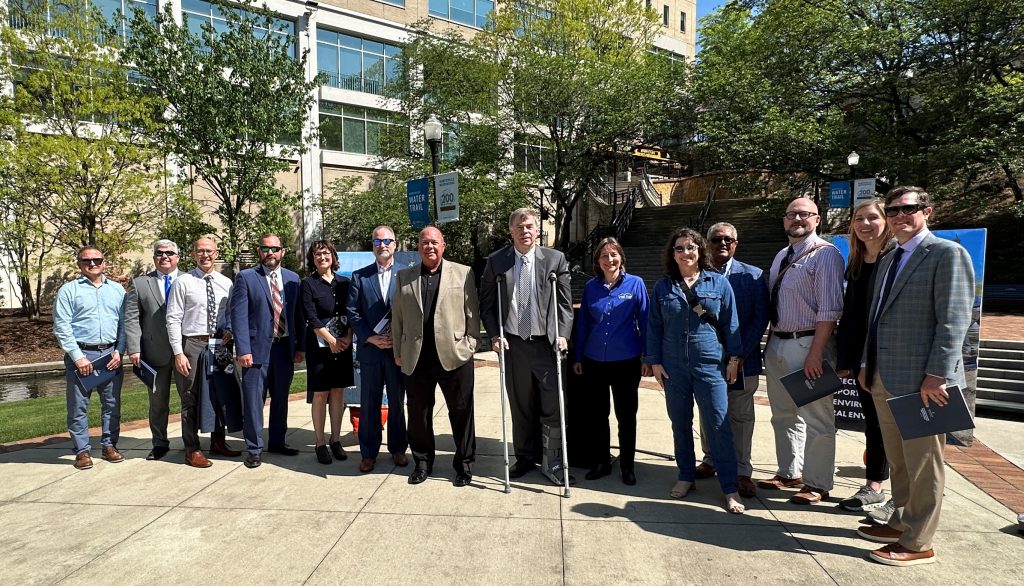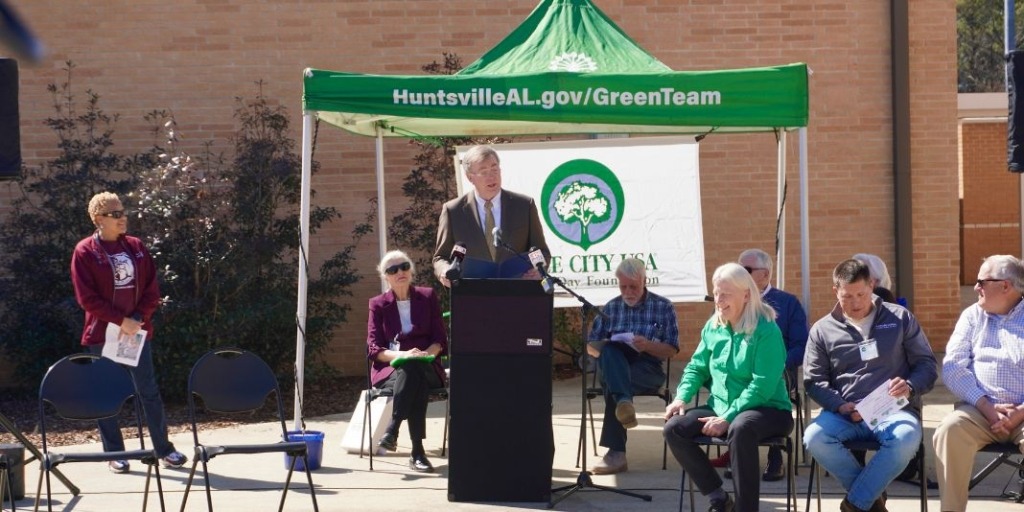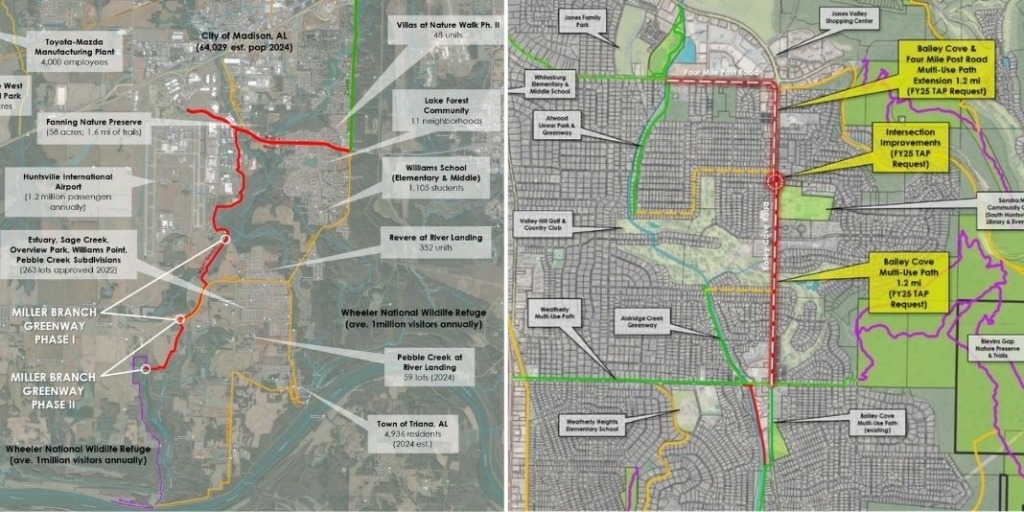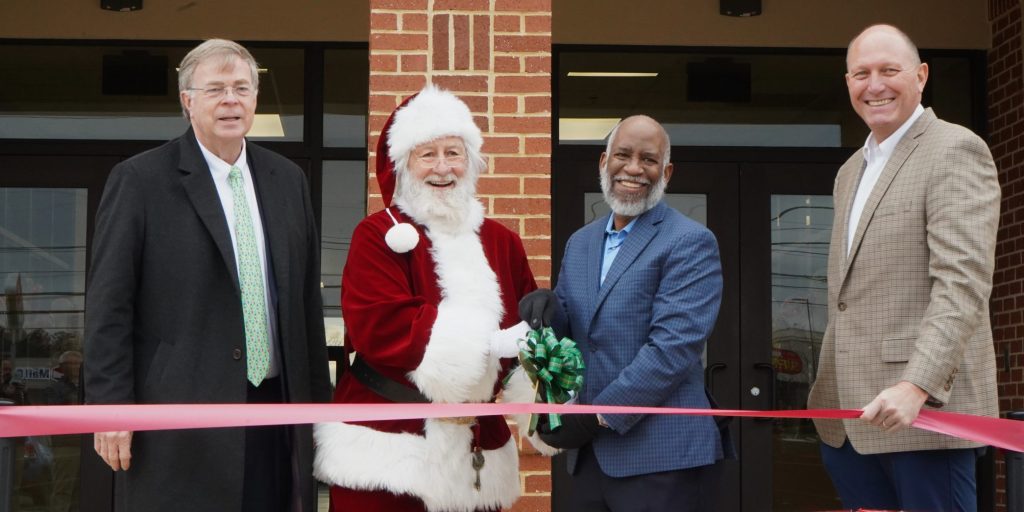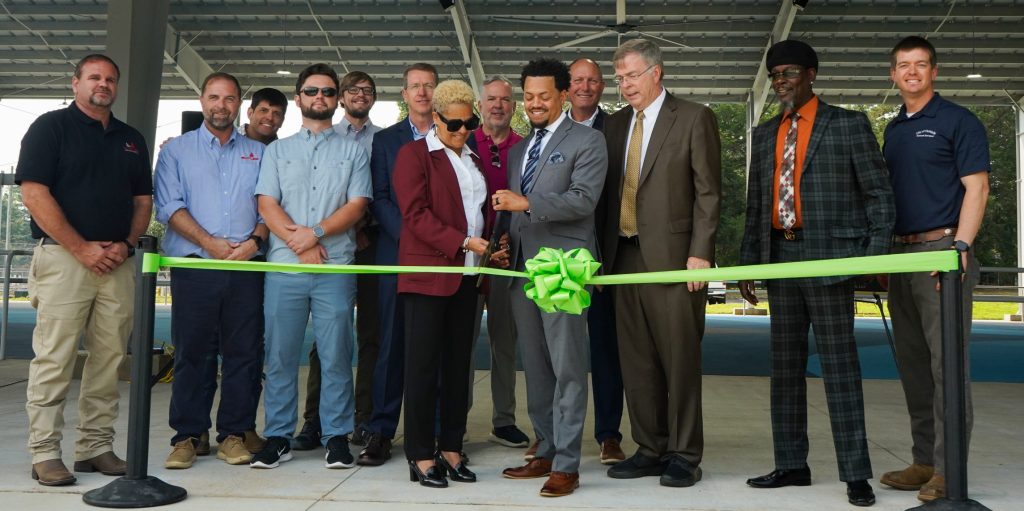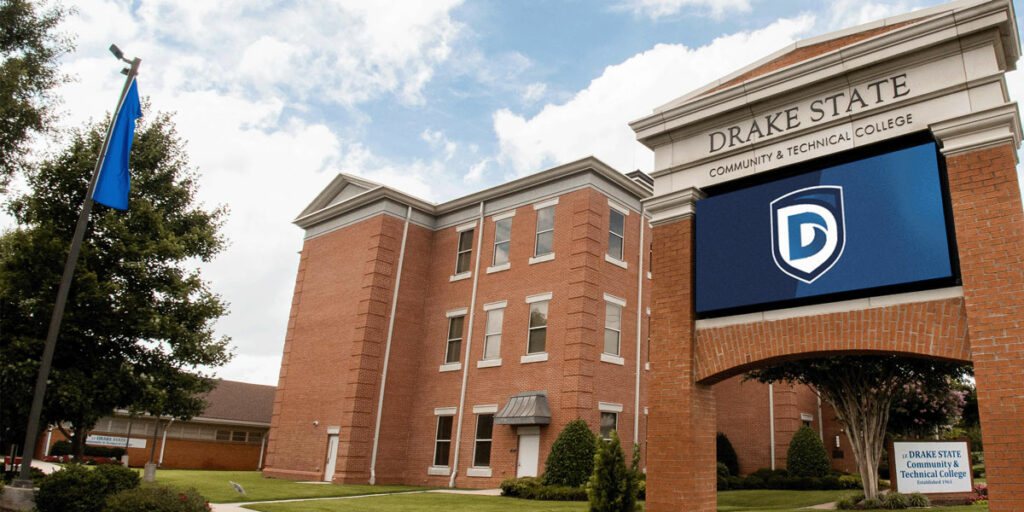HUNTSVILLE – The city of Huntsville is taking additional steps toward a net-zero footprint and becoming a more sustainable city.
For Mayor Tommy Battle, this means Huntsville is addressing its environmental, social and economic impacts through urban planning, city management and community involvement.
“Respecting and caring for our natural resources is essential for Huntsville to achieve a net-zero footprint,” he said. “Reducing costs and creating an affordable, equitable and vibrant culture for citizens are equally important, and we’re continuing our commitment to do so through planned infrastructure, expansion of public parks and green spaces, smart waste removal and more.”
A major step toward that goal was unveiled today when the Huntsville Environmental Sustainability Committee (HESC) released its report during a news conference at Big Spring Park East.
Battle established the committee last year to assess Huntsville’s progress in sustainability.
“I am immensely proud of the work by this committee and for their passion, expertise and commitment,” Battle said. “This is a complex area, and they have provided us with a thoughtful analysis, clear goals and realistic recommendations for the future.”
Led by Marie Bostick, executive director of the Land Trust of North Alabama; Michelle Jordan, executive director of TARCOG; and Jim Bolte, civic leader and retired executive with Toyota Motor Manufacturing, HESC organized into five categories: Transportation, Built Environment, Energy, Food Security and Natural Environment. Environmental Justice was also recognized by the committee as an integral part of the sustainability conversation and is addressed within each category.
In their research, HESC conducted public surveys and input sessions, interviewed municipal employees and corporations, and determined key areas of focus, goals and recommendations. Many of the city’s department heads also served on the committee and provided valuable insights.
“We discovered a number of efforts already occurring that were not well-known across the sectors,” Bostick said. “We want to build on the initiatives that exist, and we don’t want to miss opportunities because of a lack of knowledge or cross-collaboration.”
Bolte said cross-collaboration is central in maximizing the impacts and benefits of environmental sustainability.
“It’s easy for everyone to get so involved in their day-to-day work that we fail to see synergies that are readily available,” he said. “We want to create processes so that someone working in water pollution management can regularly cross-pollinate with workers in energy production.
“Imagine the new possibilities and solutions that will come from these alliances.”
Bostick pointed to the committee’s recommendation in Built Environment to create greater density in urban areas (a smaller footprint and more vertical structures) and the recommendation in Food Security to incorporate agricultural land in urban areas for locally sourced food.
“At first glance, some people may think this is at odds, but it’s not,” Bostick said. “We can have greater density and provide open space for community gardens. Not everyone needs to have a large lot – we need to be more intentional in our efforts to dedicate and share resources.”
The HESC report will provide a framework for the City of Huntsville’s future sustainability efforts. Battle said the City will keep these goals and recommendations top of mind in its day-to-day decision making.
To ensure Huntsville remains on this path, the mayor is establishing a Sustainability Commission. The panel will work to advance Huntsville’s established environmental goals by measuring and monitoring sustainability across the city.
“This work is ongoing and ever-changing as we adapt to evolving environmental challenges,” Mayor Battle said. “As a smart city, it is our responsibility to our community and our planet to use resources wisely so that future generations may enjoy the benefits we have today.”


